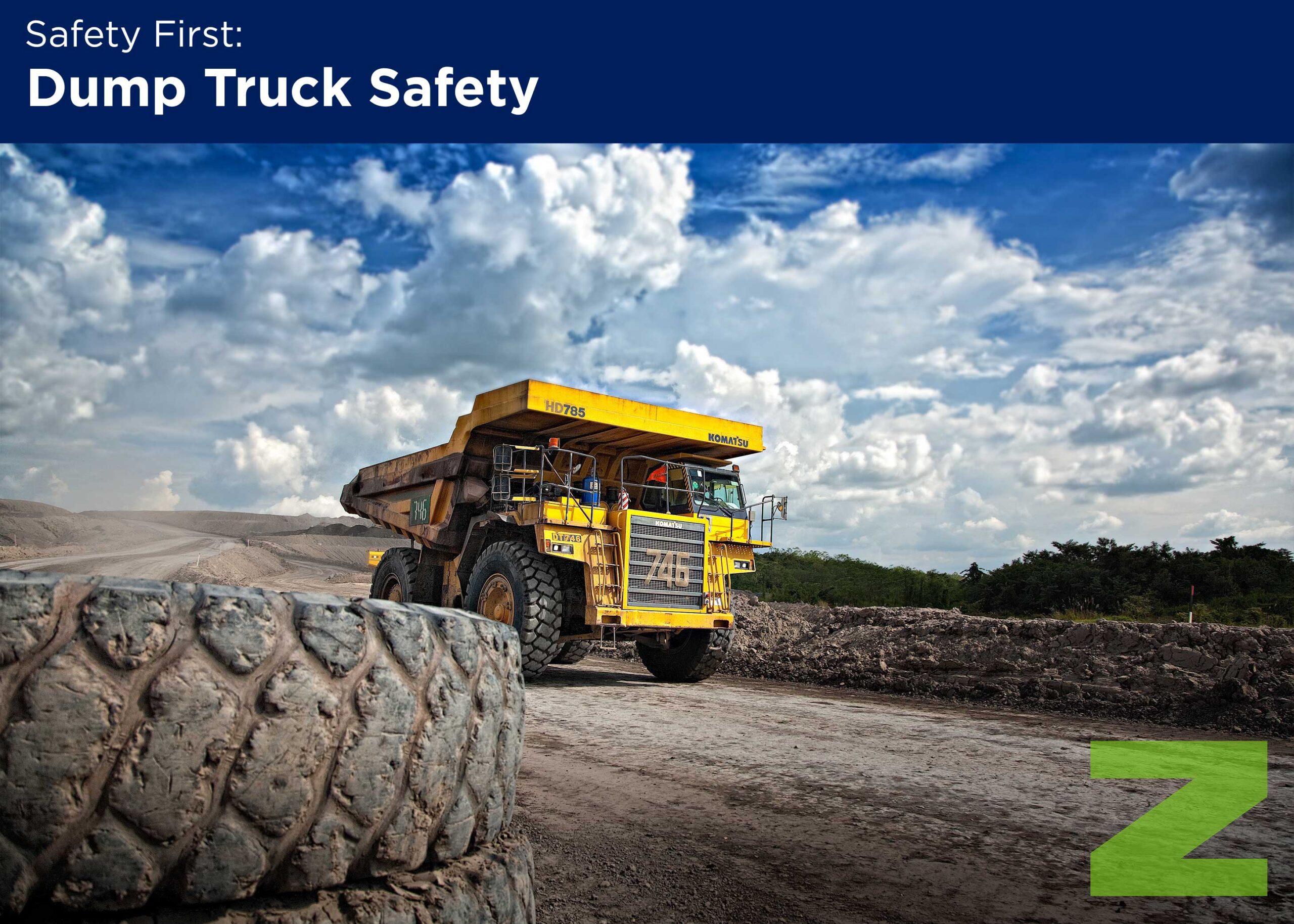As end-dump truck bodies and semitrailers have increased in length, the frequency of units tipping over has also increased. The construction and trucking sectors should be aware of this tip-over hazard, the contributing conditions and methods of prevention.
Stability
The primary hazard is related to the stability of the unit when the box is in the raised position. When the center of gravity of the box and load is not roughly between the frame rails of the unit, there is a risk of tip-over. Even a slight slope can be enough to cause tipping if dumping material does not flow out of the top portion of the box. Stability is adversely affected by the following factors:
- The unit is not on a level surface when dumping.
- Material does not flow out of the top portion of the raised box.
- The rear wheels settle unevenly as the load moves to the rear during dumping.
- Wind may exert lateral forces, especially if the box is long, as is the case with end-dump semitrailers.
- Cold weather may cause materials to freeze to the box and stick when dumping. Using heated boxes will reduce the problem. During winter, loads should not be left in dump boxes overnight.
Stability may also be affected by the unit’s mechanical condition, such as:
- Poor rear suspension systems on one side of the vehicle
- Uneven tire pressure in rear wheels
- Worn or inadequate pins or other components of the lifting system
- Worn or inadequate lifting cylinders
Hazard Control
Due to stability concerns with semitrailers, they should not be used for haulage to rough grading or fill areas where surfaces are often uneven or loosely compacted. Instead, straight trucks and pup trailers are more appropriate for these dump areas. Where haulage and dumping are all on-site, straight trucks or off-highway vehicles are good choices. Where aggregates are being spread for road construction, belly-dump semitrailers are more appropriate than end-dump semitrailers.
Vehicle Maintenance
Vehicle maintenance also plays an important role in preventing tip-overs. The following recommendations should be followed:
- Check tire pressures daily. Tire pressure should be the same on both sides of the vehicle.
- Examine and lubricate pins and bushings regularly.
- Inspect suspension systems while the vehicle is loaded to ensure they work properly and provide even suspension. Weak suspension systems should be replaced immediately.
- Inspect hoist cylinders regularly. Replace worn cylinders with the same size and type.
- Make sure that repairs to boxes leave the bottom and sides clear and unrestricted. Rough patchwork repairs near the top of the box can catch and hold sticky materials.
Loading and Dumping
Front-to-back loading of the box should meet allowable gross weight and axle weight limitations set by the Department of Transportation. If material is likely to flow poorly, lighten up the load in the top end of the box. Always load as evenly as possible from side-to-side.
Box liners will help most materials flow better during dumping and will also help to keep the box in good condition. Other dumping guidelines are as follows:
- Operators should be trained to recognize areas hazardous to dumping, such as soft or uneven surfaces and inadequately compacted fill.
- Before dumping, operators should ensure that the tailgate is unlocked and that the vehicle is on a reasonably level surface. Dumping on surfaces that are not level is the primary cause of tip-overs.
- Before spreading material by dumping it from a moving truck, make sure that the entire length of truck is reasonably level.
- Trucks should not dump when they are parked side-by-side with another vehicle. When a dump unit tips over, it is often the operator in the adjoining vehicle that is injured.
- Other personnel such as dozer operators, surveyors and spotters should be warned not to work near a dumping truck in case it tips over.
For Additional Information
Mine Safety and Health Administration: www.msha.gov
- Safety Hazard Pocket Cards: Truck Drivers – Dump Sites
Texas Department of Insurance, Division of Workers’ Compensation: www.tdi.state.tx.us
• Dump Truck Tip-Over Prevention Fact Sheet





